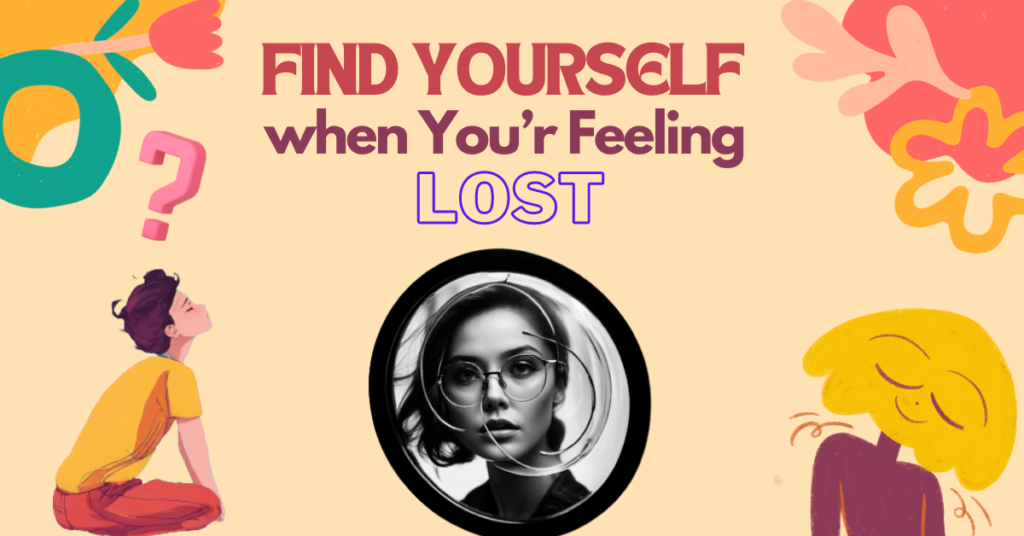How to Find Yourself Again: Navigating the Path to Self-Rediscovery
Unlock the secrets to self-discovery with our guide on “How to Find Yourself Again.” Navigate the labyrinth within, embrace change, and celebrate small wins on your transformative journey. Get expert insights, FAQs, and more. Start your rediscovery today!
Introduction
Embarking on a journey of self-disclosure is a significant and groundbreaking experience. In a world filled with external influences and expectations, finding oneself again requires navigating the depths of one’s being. This article, “How to Find Yourself Again,” serves as a guide for those seeking to reconnect with their authentic selves.
Understanding Self-Discovery
The quest for self-discovery involves navigating the labyrinth of one’s own thoughts, emotions, and experiences. It’s a journey of introspection, requiring a deep dive into the core aspects of identity and purpose. As we navigate this intricate maze, we unveil the layers that make us who we are.
Signs You've Lost Yourself
Recognizing the subtle whispers of disconnection is crucial in understanding ‘How to Find Yourself Again.’ Whether it’s a persistent feeling of emptiness or a lack of fulfillment, these signs indicate that one may have lost touch with their true self. Acknowledging these cues is the first step towards a journey of rediscovery.
Embracing Change
Change is the only constant in life, and embracing it is fundamental to personal evolution. Rediscovering oneself involves a metamorphosis—a shedding of old layers to make way for new growth. Embrace change as a trademark piece of the trip.
Reflecting on Past Experiences
Our past experiences shape us in profound ways on the journey of ‘How to Find Yourself Again.’ Each setback and triumph contributes to the tapestry of our lives. Reflecting on these experiences allows us to glean valuable lessons, fostering resilience and growth.
Setting Personal Goals

Setting clear and meaningful goals creates a roadmap for self-discovery. These goals act as milestones, guiding us towards a deeper understanding of ourselves. They provide direction and purpose on the journey within.
The Role of Positive Affirmations
The power of self-talk cannot be underestimated. Positive affirmations act as tools for cultivating a mindset that uplifts and motivates. Incorporating these affirmations into daily routines reinforces a positive self-perception.
Cultivating Mindfulness
In the fast-paced world we live in, being present in every moment is a skill worth cultivating. Mindfulness practices, such as meditation and deep breathing, enhance self-awareness and deepen the connection with one’s true self.
Seeking Professional Help
Knowing when to seek professional guidance is a sign of strength. Therapists or counselors can provide valuable insights and tools to navigate complex emotions, facilitating a smoother journey to self-discovery.
Building Supportive Relationships

Connections with others play a pivotal role in self-rediscovery. Surrounding oneself with supportive individuals who understand and encourage personal growth can significantly impact the journey.
Engaging in Hobbies and Passion Pursuits
Rediscovering joy involves engaging in activities that resonate with our interests. Whether it’s reviving a long-lost hobby or exploring new passions, these pursuits reconnect us with our authentic selves.
Creating a Personal Mantra for 'How to Find Yourself Again"
Crafting a personal mantra encapsulates our values and aspirations in a few words. This mantra serves as a guiding light during moments of uncertainty, aligning us with our true essence.
Letting Go of External Expectations
The weight of societal expectations can cloud our judgment and lead us away from our authentic selves. Letting go of external pressures liberates us to embrace our uniqueness and individuality.
Celebrating Small Wins on the Path of 'How to Find Yourself Again"
Recognizing and celebrating little triumphs en route is essential. Each step forward, no matter how small, is a triumph on the path to rediscovery. Positive reinforcement fuels the motivation to continue the journey.
9 Tips to Find Yourself When You're Feeling Lost
Feeling lost is a universal experience, but it doesn’t have to define your journey. Rediscovering yourself is an empowering process that requires self-reflection and intentional steps. Here are nine practical tips to guide you on the path to self-discovery:

I. Embrace the Unknown
Feeling lost often stems from fear of the unknown. Instead of viewing uncertainty as a threat, embrace it as an opportunity for growth. Allow yourself the space to explore, try new things, and welcome the unexpected.
II. Reflect on Core Values
Reconnect with your core values. What principles and beliefs matter most to you? Aligning your actions with your values provides a sense of purpose and helps you regain a sense of direction.
III. Set Small, Attainable Goals
Break down larger aspirations into smaller, achievable goals. These milestones serve as stepping stones, providing a sense of accomplishment and momentum on your journey to self-discovery.
IV. Practice Mindfulness and Self-Reflection
Allocate time for mindfulness and self-reflection. Engage in practices like meditation to quiet the mind and reflect on your thoughts and feelings. This self-awareness is crucial in understanding yourself more deeply.
V. Seek New Experiences
Step outside your comfort zone and expose yourself to new experiences. Whether it’s trying a new hobby, exploring a different culture, or meeting new people, these experiences broaden your perspective and aid in self-discovery.
VI. Surround Yourself with Positive Influences
Evaluate your social circle. Encircle yourself with people who elevate and rouse you. Positive influences contribute to a supportive environment that encourages personal growth.
VII. Learn from Setbacks
Setbacks are a natural part of life. Instead of viewing them as failures, see them as opportunities for learning and resilience. Extract lessons from challenges, allowing them to shape your personal growth positively.
VIII. Express Yourself Creatively
Tap into your creative side. Whether through art, writing, or other forms of expression, creativity is a powerful outlet for self-discovery. It allows you to explore and communicate your thoughts and emotions.
IX. Connect with a Mentor or Guide
Seek guidance from someone you admire or trust. A mentor or guide can offer valuable insights, perspective, and encouragement as you navigate the path to rediscovering yourself.
Conclusion
As we reach the culmination of this exploration on “How to Find Yourself Again,” it’s essential to recognize that the quest for self-discovery is not a destination but a continuous journey. The intricacies of understanding oneself, embracing change, and celebrating personal growth are threads woven into the fabric of our lives.
In the tapestry of existence, feeling adrift at times is a shared human experience. This guide serves as a compass, offering insights and practical steps to navigate the path back to your authentic self. The key lies in patience, self-acceptance, and a commitment to celebrating the small victories along the way.
Throughout this journey, the significance of positive relationships, engaging in passions, and releasing societal expectations becomes evident. Every step taken, whether seeking professional guidance, exploring spirituality, or reflecting on personal experiences, contributes to the mosaic of your identity.
Remember to celebrate the uniqueness within yourself, even the aspects you may find challenging. Self-discovery is a holistic acceptance of all facets of your being. As you move forward, craft a personal mantra that resonates with your true essence, providing a guiding light in moments of uncertainty.
In conclusion, embrace the adventure that lies ahead with an open heart and the confidence that true self-discovery is an ongoing process. May this guide empower you on your journey to rediscover and reconnect with the authentic you.
FAQs:
Q. Is it Normal to Feel Lost at Times?
A. Yes, it’s entirely normal to feel lost at various points in life. The journey of self-discovery is dynamic, marked by peaks and valleys. Embrace these moments as any open doors for development and learning.
Q. How Long Does the Rediscovery Process Take?
A. The duration of the rediscovery process varies for each individual. It’s a nonstop excursion as opposed to an objective. Be patient with yourself, allowing the process to unfold organically.
Q. Can Someone Help Me Find Myself Again?
A. Absolutely. Seeking guidance from mentors, friends, or professionals can provide valuable insights and support on your journey to self-discovery.
Q. What If I Don’t Like What I Discover?
A. Embracing all facets of your identity, even the ones you may perceive as challenging, is crucial. Acceptance and self-love are integral parts of the rediscovery process.
Q. Can Spirituality Play a Role in Rediscovery?
A. Certainly. Exploring the connection between self and spirit can provide a profound sense of purpose and meaning on your journey of self-discovery.
Q. How Does Self-Discovery Improve Mental Health?
A. Self-discovery promotes self-awareness and acceptance, positively impacting mental health. Understanding oneself allows for better-coping mechanisms and resilience in the face of challenges.
- You might be interested in reading this post as well:

